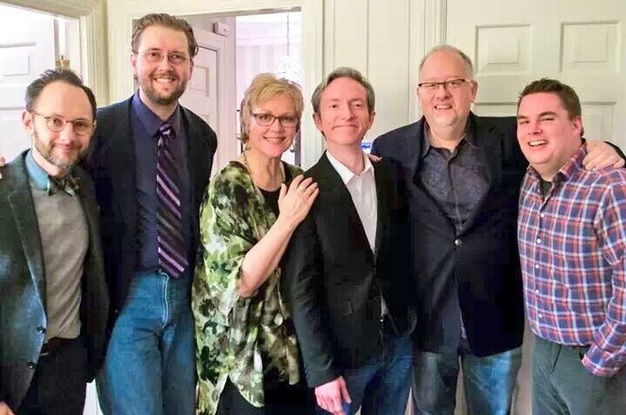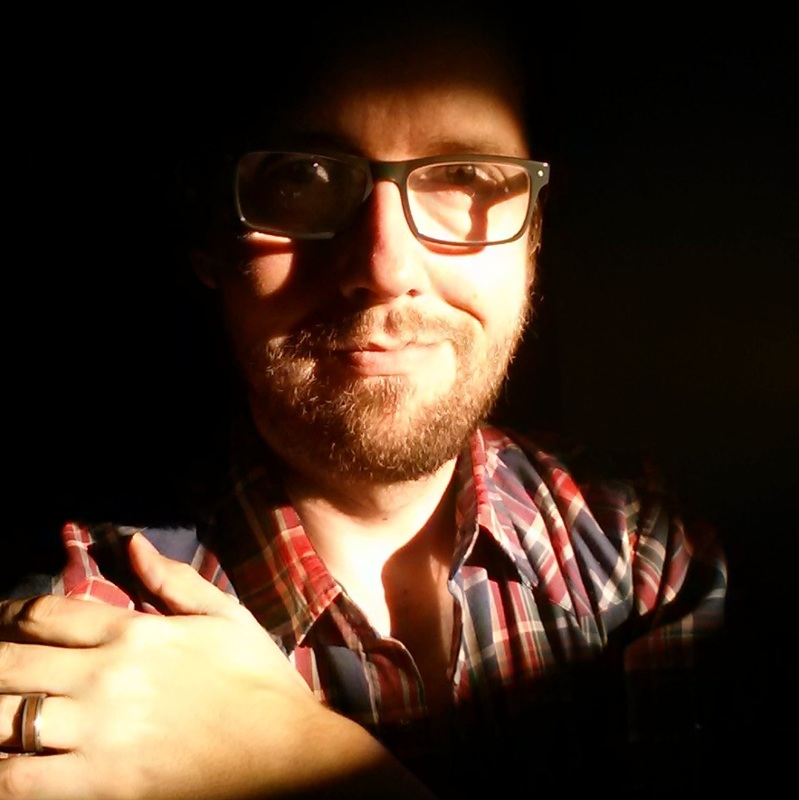|
One of the greatest helps to any playwright (or writer, for that matter) is peer feedback during the development process. Now, we could debate until the cows come home as to whether new plays are being workshopped to death in this county (and some are). I'm not talking about some endless cycle of readings and workshops that can plague a script into obscurity---that happens, unfortunately. This isn't that. Thank God. No, I'm speaking of one of the positive versions of new play development. A small, intense, lab setting where ideas are fostered, played with, supported, bounced around, and heard. Where the time in the workshop isn't weeks, but months. Where you don't come in with a script that needs "fixed" but with an idea that needs nurturing. Sounds awesome, right? To good to be true? Perhaps in some places. But not in Nashville, Tennessee. I've been wildly lucky, fortunate, and blessed (all three of those times a ba-jillion) to be working with Tennessee Repertory Theatre's annual Ingram New Works Lab this season. And on my most recent trip to Nashville---they took it to a-whole-nother level.
The Ingram New Works Lab is simple and elegant in its design. I've blogged about it before, but now, half a season in, I feel like I have a better handle on what actually happens there. A small group of writers are invited to write plays. Those plays stem from an idea. Not a script. This workshop is first and foremost a lab. A place to experiment and grow your idea into the script you will later put into something called workshop. So you come into this process with your soul ready to be laid bare upon the table---bringing in the rawest of pages and words to share with your fellow writers. And once you get over the absolute fear that comes with the prospect of artistically (and potentially emotionally) humiliating yourself by letting professional actors read 1st draft stuff, you learn that it's incredibly rewarding. Incredibly exciting. And liberating to an insane degree. You come to learn quickly that every person in that room wants the same thing: for everyone to succeed. There's no competition. No hedging bets. Everyone is in the same boat and we all want to survive this voyage together. So together we write. We read. We share. We become friends. We become brothers in arms. In pens. In keyboards. We meet up once a month like some playwright support group. "Hi. My name is Jeremy. And I have no clue how to write this scene." With a level of trust normally reserved for family and lifelong friends, you invite each other in to the earliest stages of your play's development. And it works. I'm not suggesting you randomly pull together some random bunch of writers and try this at home. The artistic staff at Tennessee Rep, led by the insightful Rene Copeland, takes great care when crafting the room of writers who will share the lab each season. But if you have a group of writers and supportive actors that you trust with new material, I'm telling you---there's nothing better than having freedom to create within a group of fellow artists. Especially when these artists are Nate Eppler, Andrew Kramer, and Dean Poynor. After months of meeting and writing and sharing and rewriting and inspiring each other, the entire lab gets a jolt of awesome at the mid-point when we're brought together for a week to work with an establish playwright, otherwise known as the Ingram New Work Fellow. The Fellows of yesteryear include Theresa Rebeck, David Auburn, Steven Dietz, and other nationally acclaimed writers. This year, we were treated to a week with Doug Wright, the Tony Award- and Pulitzer Prize-winning playwright of I Am My Own Wife, Quills, and a new play that (trust me) is a keeper. He's worked on dozens of projects and has a bio that rocks. Oh, and he's the kindest man and tells the best stories. Of all time. Ever. True story. The week was a whirlwind of activity. From Saturday night to Tuesday afternoon we saw a staging of Doug's musical Grey Gardens, heard readings of plays from all four lab writers, and got a sneak peek at Doug's new play (coming soon to the Tennessee Rep Ingram New Works Festival in May---what? I'm gonna plug that). There were master classes with Doug, one-on-one meetings, loads of rewriting, more readings, nights out to cocktail receptions to meet the generous people who serve on TNRep's Board, and some fun dinners with Rene and Doug where the aforementioned stories were told late into the night. Somewhere, in between all the events and readings and listening to Doug tell stories, I made huge strides on my new play. In between reading one and reading two, there spanned perhaps 96 hours. And in that time, I managed to crank out another draft of my play. A rough, raw, still bleeding, draft---but a new draft. The week was there to give me writing time, and space, to work, to think, to draw upon the notes I gleaned from the lab and the wisdom I siphoned from Doug, in order to figure out my play. To understand it. To wrestle it down and make sense of it. And lo and behold, it worked. Doug offered up a lovely analogy to the TNRep board when we all met them (p.s. that's where that awesome photo above was taken). He spoke of plays like recipes. We write them down and send them out to theaters and hope that what each theater creates resembles the original. So this lab is like our test kitchen. Working out the kinks in the recipe, smoothing out the issues, and creating a recipe, a blueprint, that is clear and easy to follow for any theater that picks up the script. I like that thought. Not in that I expect every production of my plays to be identical (there's going to be differing interpretations from production to production), but I want the recipe to be clear. I want the play to come through in the script and not get buried in a muddy mess of confusion. Taking time in the TNRep kitchen...er, lab... is giving me the time and resources to create that clarity and tell the story I'm trying to tell. Playwriting is often about discovery, at least for me. My lab mate Andrew is crafting a lovely play that mentioned at one point this idea of how sculptors chisel away at the stone, working to release the statue that's already inside. I'm paraphrasing and mixing some images, but the concept still holds (and Andrew says it way better in his new play). When I look my computer screen, at the pixels coming together to form words, there's a play somewhere in those pages. It's in my head. It's already there. Only it's surrounded by paraphrased scenes, alternate reality versions of itself, and pages and pages of dialogue that may or may not survive until the festival in May---all this stuff I'm trying to sift through, sort out, and chisel away in the hopes of revealing the play I know is buried in there. When all this started in the Fall, I remember having to let go---having to release the anxiety that can boil up when facing the blank page. Of course, sometimes that anxiety creeps back in, builds up, settles in the nooks and crannies of the mind even when the pages are full. That week with Doug and the lab reminded me once again why I love this story and these characters and helped me discover some insights into the play. In the end, that's what a great writers group does---it works with you to support your vision for a play, helps you sort through the clutter, and in the best cases, it inspires you. To learn more about Tennessee Rep and the Ingram New Works Lab, make sure to visit their website. We have a festival of new plays coming up in May. Until then, keep reading my blog for an inside look. |
Jeremy's blog
Thoughts. From my brain. Anything to do with how we tell stories and the stories we tell each other. Literally and figuratively. About JeremyWriter. Husband. Father. Effulgent dreamer. A Fightin' Irishman (@NDdotEDU '01). A playwriting Bobcat (MFA in Playwriting, @OhioU '13). I write plays. I'm a geek. I wanted to be an astronaut. I go places in my head.
Categories
All
Archives
January 2022
|



 RSS Feed
RSS Feed
